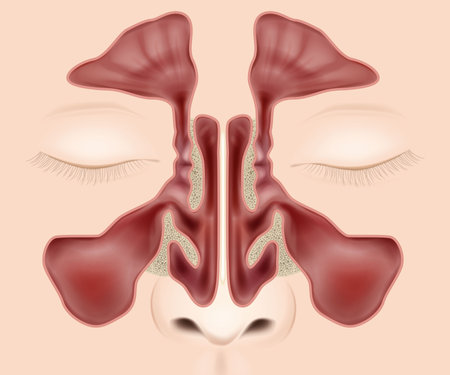Introduction to Cancer Rehabilitation in the UK
Cancer rehabilitation has emerged as a crucial component of comprehensive cancer care, particularly within the context of the United Kingdoms unique healthcare system. The process aims not only to address physical symptoms following cancer treatment but also to support emotional, psychological, and social wellbeing. As survival rates improve and more people live longer post-diagnosis, there is an increasing demand for holistic approaches that enable individuals to regain independence and quality of life. In the UK, cancer rehabilitation is shaped by the principles of the NHS—universal access, patient-centred care, and multidisciplinary collaboration. This distinct environment fosters a culture where rehabilitation is integrated early in the cancer journey, from diagnosis through to survivorship or palliative care. The significance of cancer rehabilitation cannot be overstated; it helps reduce hospital readmissions, minimises disability, supports return to work or normal activities, and improves overall outcomes. Understanding how these services are structured, delivered, and tailored within the UK is essential for appreciating the critical role played by multidisciplinary teams in meeting the complex needs of those affected by cancer.
2. Composition and Roles of Multidisciplinary Teams
In the United Kingdom, cancer rehabilitation is delivered through a coordinated effort by multidisciplinary teams (MDTs), reflecting a holistic and patient-centred approach. These teams bring together professionals from various clinical backgrounds to address the complex needs of individuals recovering from cancer. MDTs are not only a hallmark of NHS practice but also essential for ensuring that patients receive seamless, comprehensive care throughout their rehabilitation journey.
Key Professionals within Cancer Rehabilitation MDTs
The composition of an MDT may vary depending on the type and stage of cancer, as well as patient-specific requirements. However, there are several core roles commonly found within UK-based MDTs:
| Professional | Primary Responsibilities | Typical Collaborative Activities |
|---|---|---|
| Oncologist | Oversees medical aspects of cancer treatment and ongoing management. | Liaises with other specialists to tailor rehabilitation plans according to disease status. |
| Physiotherapist | Assesses and supports physical function, mobility, and exercise programmes. | Works closely with occupational therapists to develop safe activity plans. |
| Occupational Therapist | Focuses on enabling daily living activities and cognitive or vocational rehabilitation. | Collaborates with physiotherapists and social workers for holistic support. |
| Cancer Nurse Specialist | Provides patient education, emotional support, and symptom management. | Acts as a key contact for patients and families; coordinates between disciplines. |
The Importance of Collaboration
The strength of UK MDTs lies in their emphasis on regular communication and shared decision-making. Weekly or fortnightly MDT meetings are standard practice within NHS Trusts, fostering timely information exchange and joint problem-solving. This collaborative ethos ensures that care plans remain dynamic, responsive, and tailored to each individual’s evolving needs. Furthermore, professionals such as dietitians, speech and language therapists, psychologists, social workers, and palliative care specialists may be integrated as required, reinforcing the adaptability of MDTs within diverse healthcare settings across the UK.
Conclusion
The effectiveness of cancer rehabilitation in the UK is fundamentally linked to the structure and synergy of multidisciplinary teams. By drawing on the unique expertise of each professional group—and prioritising communication—MDTs deliver holistic, person-centred care that addresses both the immediate and long-term challenges faced by cancer survivors.

3. Collaborative Approaches: A UK Perspective
Within the context of cancer rehabilitation in the United Kingdom, collaborative approaches are fundamental to delivering high-quality, patient-centred care. The NHS framework strongly emphasises teamwork among professionals, as multidisciplinary teams (MDTs) bring together expertise from oncology, physiotherapy, occupational therapy, dietetics, psychology, and social work. This interprofessional collaboration ensures that every aspect of a patient’s rehabilitation journey is addressed, from physical recovery to psychological wellbeing and social reintegration.
However, achieving effective cooperation within MDTs is not without its challenges. One persistent issue in British cancer rehabilitation is the complexity of communication across different professional boundaries. Despite well-established protocols such as regular MDT meetings and shared electronic records, differences in terminology, clinical priorities, and workload pressures can hinder seamless information exchange. Moreover, geographical disparities across the UK mean that access to comprehensive MDTs can vary between urban centres and rural areas, presenting additional barriers to uniform care delivery.
To address these challenges, NHS trusts have implemented several strategies to promote more integrated teamwork. These include structured communication tools like SBAR (Situation-Background-Assessment-Recommendation), standardised care pathways for specific tumour types, and designated MDT coordinators who facilitate case discussions and follow-up actions. Furthermore, ongoing professional development programmes encourage team members to build mutual respect and understanding of each other’s roles—an approach that has been shown to foster a more cohesive working environment.
Ultimately, while multidisciplinary collaboration remains a cornerstone of British cancer rehabilitation, continuous refinement of cooperative strategies is essential. Embracing open dialogue, investing in training on team dynamics, and leveraging digital health solutions are key steps towards overcoming persistent obstacles and ensuring that patients receive holistic support throughout their rehabilitation journey.
4. Personalised Rehabilitation Pathways
The philosophy of patient-centred care sits at the heart of cancer rehabilitation across the UK, with multidisciplinary teams (MDTs) playing a pivotal role in tailoring pathways to the unique needs of each individual. The NHS Long Term Plan and NICE guidelines both underscore the importance of bespoke support, reflecting the diversity of cancer experiences and the complex interplay of medical, psychological, and social factors involved in recovery.
MDTs in UK cancer services typically comprise oncologists, physiotherapists, occupational therapists, speech and language therapists, clinical psychologists, dietitians, specialist nurses, and social workers. Each professional brings a distinct lens to assessment and care planning, ensuring that rehabilitation is not a one-size-fits-all process. Instead, MDTs engage in structured discussions—often within weekly or fortnightly meetings—to review patient progress and adapt plans responsively.
Key Elements of Personalised Rehabilitation Pathways
| Element | Description | UK Practice Example |
|---|---|---|
| Holistic Needs Assessment | Comprehensive evaluation covering physical, emotional, social and practical concerns. | Macmillan’s Holistic Needs Assessment tool routinely used at diagnosis and key transition points. |
| Goal Setting | Collaborative identification of realistic, meaningful goals based on patient priorities. | SMART (Specific, Measurable, Achievable, Relevant, Time-bound) goals developed with input from all MDT members. |
| Individualised Interventions | Selection of therapies and support tailored to symptoms, treatment side effects and personal context. | Bespoke exercise programmes for fatigue; psychological support for anxiety; dietary advice adjusted for cultural background. |
| Regular Review & Adjustment | Ongoing reassessment ensures flexibility and responsiveness as needs evolve. | MDT meetings facilitate timely modifications based on patient feedback and clinical outcomes. |
| Coordination & Communication | Smooth information sharing across hospital and community settings to prevent fragmentation. | Cancer Nurse Specialists act as key workers to coordinate care between acute trusts and primary care. |
The Value of Patient Involvement in Care Planning
UK practice actively encourages patients to participate in decision-making about their own rehabilitation. This not only empowers individuals but also leads to better engagement with therapy and improved satisfaction with outcomes. MDTs routinely provide clear information about available options—such as home-based versus centre-based therapies—and respect patient preferences regarding timing, intensity, and even location of interventions. Cultural sensitivity is particularly emphasised within diverse communities across England, Scotland, Wales, and Northern Ireland.
Challenges and Opportunities
While personalised care is widely valued in principle, operational challenges remain—ranging from workforce shortages to variation in access across different regions (the so-called “postcode lottery”). Nevertheless, digital health innovations and national policy initiatives are helping to bridge these gaps by supporting remote monitoring and virtual MDT meetings. As UK cancer services continue to evolve post-pandemic, the commitment to truly personalised rehabilitation remains central to MDT practice—a foundation upon which future improvements will undoubtedly build.
5. Barriers and Facilitators in Multidisciplinary Cancer Rehabilitation
Within the UK, multidisciplinary teams (MDTs) are widely recognised as the gold standard in cancer rehabilitation. However, translating this model into practice is not without its challenges. One of the most prominent barriers is resource constraint. NHS trusts across England, Scotland, Wales, and Northern Ireland frequently report shortages in specialist staff, such as physiotherapists, occupational therapists, and clinical psychologists, which can lead to increased caseloads and longer waiting times for patients. Financial limitations further restrict access to cutting-edge rehabilitation equipment or tailored interventions, especially within smaller trusts or rural regions.
Geographical variation remains a significant hurdle to equitable MDT provision. Urban centres often benefit from proximity to large teaching hospitals with comprehensive oncology services, while patients in remote or underserved areas may have limited access to specialist team members or advanced therapies. This postcode lottery can lead to disparities in outcomes and patient experiences across the UK.
Another obstacle is the complexity of inter-professional communication. Despite advances in digital record-keeping and virtual case conferences, siloed working practices persist in some settings, undermining the holistic ethos of MDT care. Differences in terminology, priorities, or schedules among team members can hinder timely decision-making and coordinated support for patients.
Facilitators Supporting Effective Team-Based Care
Despite these challenges, several key enablers support the effective functioning of MDTs in UK cancer rehabilitation. National policy frameworks—such as the NHS Long Term Plan and Cancer Strategy for England—emphasise integration of services and prioritise funding for collaborative models of care. The increasing adoption of digital platforms has improved information sharing between primary, secondary, and tertiary care providers.
Professional Development and Shared Leadership
Ongoing professional development initiatives foster mutual understanding between disciplines and empower clinicians to work beyond traditional boundaries. Leadership structures that value shared responsibility enable all team members—from consultants to allied health professionals—to contribute equally to patient-centred planning.
Patient Involvement as an Enabler
Finally, involving patients and carers in MDT discussions is increasingly viewed as a facilitator rather than a challenge. Their input ensures that rehabilitation goals are meaningful and tailored to individual needs, supporting better engagement and outcomes. As UK cancer services continue to evolve, addressing these barriers while leveraging facilitators will be essential for delivering equitable, high-quality rehabilitation through multidisciplinary teams.
6. Future Directions and Innovations
As the landscape of cancer rehabilitation continues to evolve in the UK, multidisciplinary teams (MDTs) are poised to adapt to a range of emerging trends, policy shifts, and technological advancements. These changes are shaping not only the delivery of care but also the very structure and function of MDTs within the NHS and broader health sector.
Embracing Digital Health Interventions
The integration of digital health tools—such as telemedicine platforms, wearable monitoring devices, and electronic patient records—is rapidly becoming standard practice. These innovations facilitate more efficient communication among team members and allow for remote monitoring and support for patients, particularly those in rural or underserved areas. For MDTs, adopting these technologies means developing new competencies and workflows to ensure seamless virtual collaboration and data sharing while maintaining patient confidentiality and safeguarding sensitive information in line with UK regulations.
Responding to Policy Shifts
Recent NHS England directives have underscored the importance of personalised care plans and early intervention in cancer rehabilitation. This policy momentum is driving MDTs towards greater integration with primary care services, social support networks, and community organisations. As a result, future MDT configurations may include expanded roles for social prescribers, mental health professionals, and voluntary sector representatives, reflecting a truly holistic approach tailored to each patient’s unique needs.
Harnessing Data for Personalised Rehabilitation
Advanced analytics and artificial intelligence are beginning to influence clinical decision-making within MDTs. By harnessing large datasets from across the UK, teams can identify trends, predict patient outcomes, and tailor interventions with greater precision. This data-driven approach is expected to support risk stratification models that help prioritise resources for those most likely to benefit from intensive rehabilitation—aligning with national efforts to reduce health inequalities across different regions.
Innovation through Collaborative Research
Ongoing research collaborations between NHS Trusts, academic institutions, and industry partners are paving the way for novel rehabilitation strategies. Clinical trials exploring virtual reality-based physiotherapy or AI-supported psychological interventions exemplify how innovation is embedded within the fabric of UK cancer rehabilitation MDTs. Engaging patients in co-designing these initiatives further ensures that solutions remain grounded in real-world needs and experiences.
A Vision for the Future
The evolving role of MDTs in UK cancer rehabilitation is ultimately about adaptability—embracing new technologies, responding proactively to policy developments, and fostering cross-sector collaboration. As these teams continue to innovate while upholding core values of compassion and equity, they will remain central to delivering world-class, patient-centred care across the nation.


